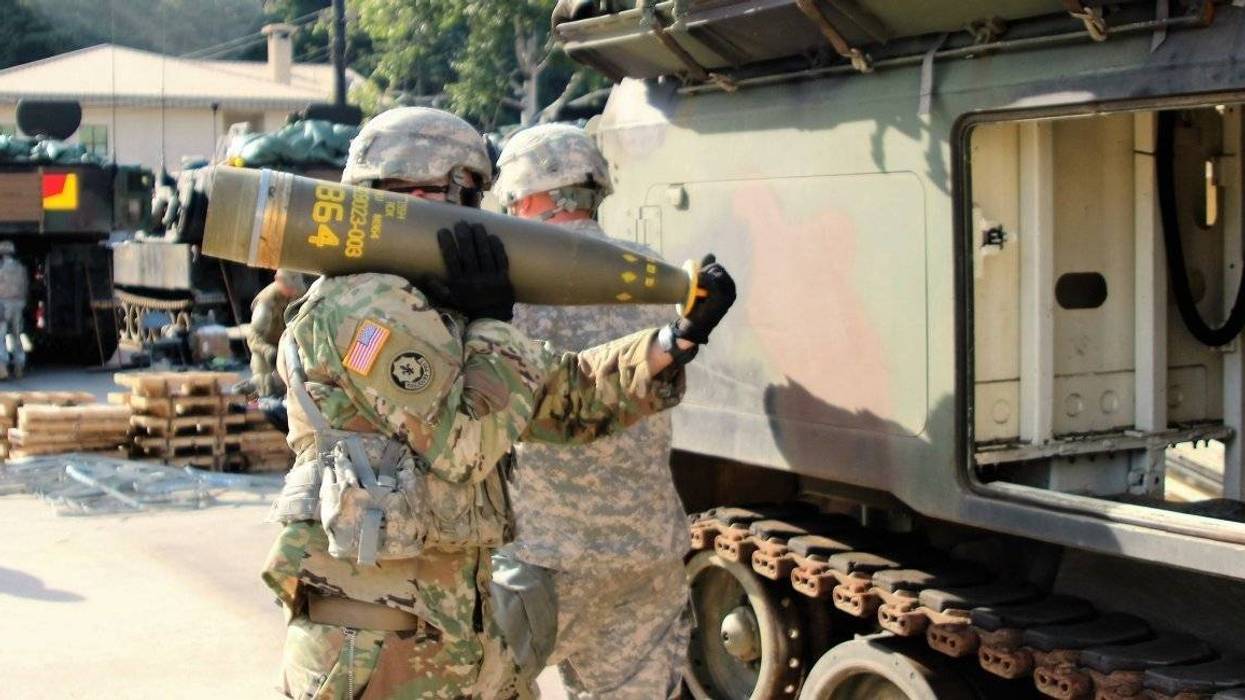"Spineless" was one word a participant had for the Democratic Party when asked to describe it. Another said the party appears "paralyzed" while a 46-year-old Latina woman from Nevada said Democrats in Congress are "sellouts and suckers."
Terrill, a 68-year-old retired Indiana resident, agreed that the party leadership has "sold out."
"I just feel we were never being governed," said Terrill. "We’re being looted. The Democratic Party lined their pockets and created—they created this mess."
A number of respondents expressed ire over the decision by eight members of the Senate Democratic caucus to vote with Republicans last November to end a record-breaking government shutdown—without securing any concessions on protecting healthcare for millions of Americans who rely on Affordable Care Act subsidies.
The response from participants "tracks 100% with what I've seen on the streets, from No Kings protests to the resistance against ICE," said commentator Hasan Piker.
Democratic leaders, he added, "are oblivious to the anger" felt by voters. "They’re speaking into an echo chamber of consultants who tell them what they want to hear."
With voters expressing such intense dissatisfaction with the leadership of establishment Democrats, "how on Earth do Chuck Schumer and Hakeem Jeffries still manage to cling to their leadership roles?" asked journalist Mehdi Hasan, referring to the Senate and House minority leaders, who both represent New York.
But along with unloading their frustration about the Democrats who continue to back ICE—even as support for the agency craters among voters—and refuse to develop what one voter called "clear, concise messaging" that communicates how the party will fight for working Americans, the participants talked about the political leaders who "excite" them about the future of the party and the country.
Mike, a 33-year-old telecommunications professional in North Carolina, said that Mamdani, a democratic socialist, exemplifies what the party "should be doing more of."
Less than two months into his mayoral term, said Mike, Mamdani has provided voters in New York and across the country with a "clear and concise" message about how he plans to govern and what he plans to prioritize.
Mike drew a comparison to Sen. Bernie Sanders (I-Vt.), an early backer of Mamdani who is continuing the Fighting Oligarchy nationwide tour he began last year, speaking to crowds in both red and blue districts about the need for policies that serve working families rather than billionaire political donors and corporations.
"Bernie has said the same thing since the ’80s," said Mike. "You’ve got to tax the billionaires. You’ve got to tax the upper class. He’s never changed. That’s the messaging. You’ve just got to drill it into them, and Zohran did it. Man, it’s beautiful."
While other respondents expressed some enthusiasm about more moderate leaders like Gov. Gavin Newsom of California and former Transportation Secretary Pete Buttigieg, several participants agreed with Mike's comments on Mamdani and one independent voter named Rep. Alexandria Ocasio-Cortez (D-NY), another outspoken democratic socialist and a potential 2028 contender, as a leader who "excites" them.
If given a choice between voting for a moderate candidate in an election or a progressive, all 13 participants said they would choose the progressive.
A 29-year-old independent voter named Panth from Arizona said the term moderate reminded him of "people like [former West Virginia Sen.] Joe Manchin, who hold up some of the policies that I would want supported."
"I feel like moderates are happy with the status quo and will basically do what we’ve always done. The system is working for them and they want to keep it the same. I think for a large part of Americans, the system isn’t working, so we need something new," said Panth.
Days after taking office, Mamdani announced that he and Democratic New York Gov. Kathy Hochul had finalized a deal to fund his universal childcare plan for the city. He also announced the launch of "rental ripoff" hearings to hold landlords accountable for abuses, intervened in a major renters' dispute, personally aided with snow removal, and repaved a dangerous bump in the road on the Williamsburg Bridge.
Progressive policymakers "actually do stuff," summarized Panth.
The widespread expression of enthusiasm for progressive candidates came a week after grassroots organizer Analilia Mejía's victory in the Democratic primary in New Jersey's 11th Congressional District, after which Sanders asserted that victories on the left "can be done everywhere.”
As Trump has ramped up his attacks on immigrant communities and First Amendment rights, leaders including Schumer and Jeffries have incensed progressive commentators by backing down on demands to rein in ICE, refusing to clearly condemn the administration's arrest and attempted deportation of pro-Palestinian protesters, and expressing frustration at advocacy groups that have demanded they fight the Trump agenda.
"The Democratic Party needs to embrace voices that resonate with people," said Panth. "When you hear Bernie, he has energy because he really believes in what he’s saying. It’s the same reason Trump resonates with people, because he acknowledges some of the struggles that they’re facing. Sure, he blames the wrong groups, but he at least voices it. The Democratic Party doesn’t do the same."
Alex Jacquez, a former Obama administration official who's now chief of policy and advocacy at the economic justice group Groundwork Collaborative, commented: "Bingo."





